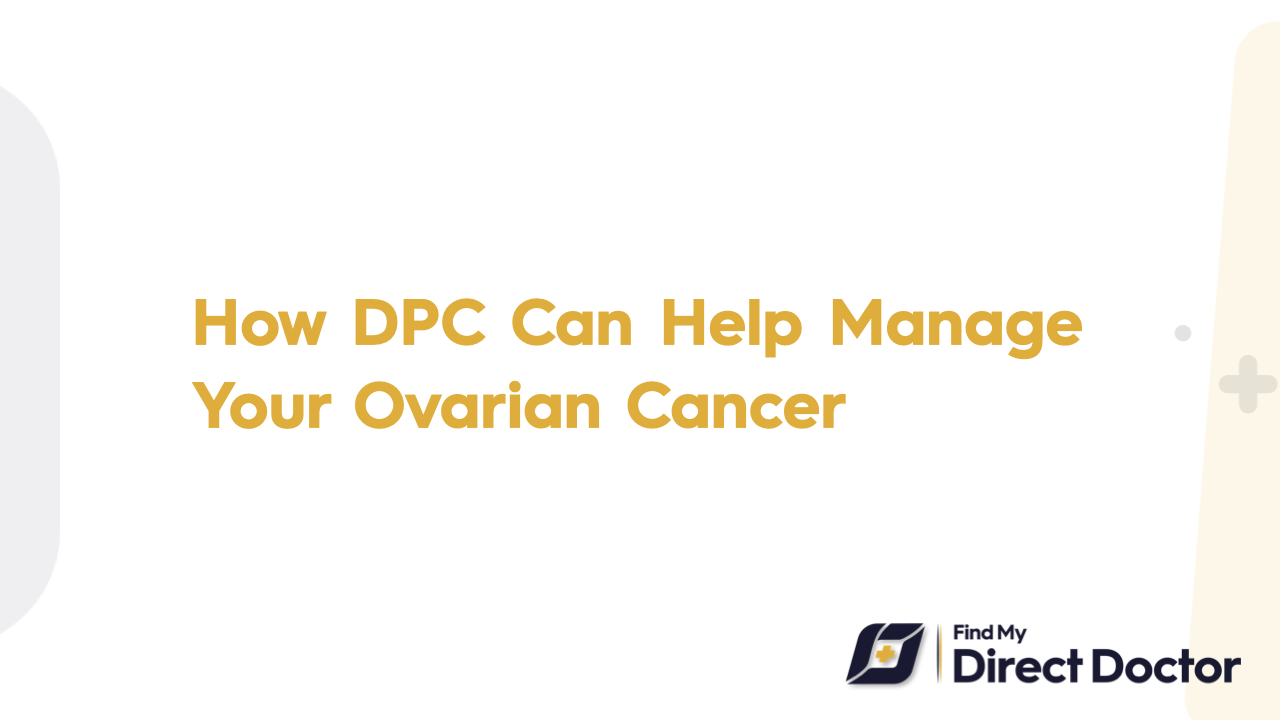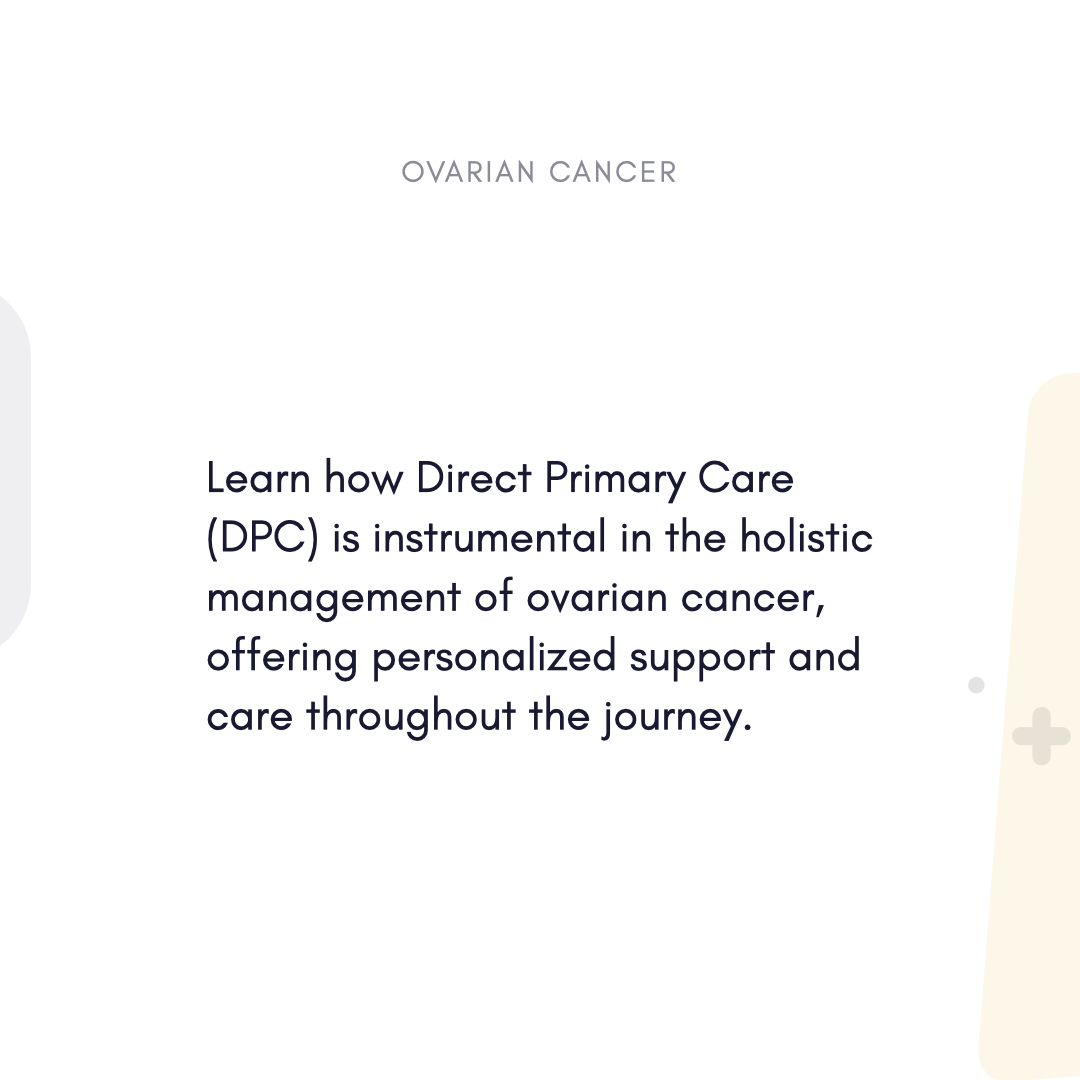Ovarian Cancer and Direct Primary Care (DPC): Personalized Support for Early Action and Better Outcomes
A silent killer whispering symptoms until it is too late. Annually in the United States, ovarian cancer claims over 13,000 lives; often diagnosed at advanced stages when treatment choices are limited. Conventional wisdom battles with delayed referrals, poor communication, and financial toxicity. Direct Primary Care (DPC) offers a lifeline through fast diagnostics, flawless coordination, and relentless support, though.

Understanding Ovarian Cancer
Beginning in the ovaries or fallopian tubes, ovarian cancer causes nebulous early symptoms including bloating, pelvic pain, or urinary urgency. Groups classified as high risk include those with endometriosis, family history, or BRCA mutations. Important obstacles:
- Early diagnosis: Eighty percent of cases come across in Stage III or IV.
- Complex treatment calls for careful coordination among surgery, chemotherapy, and targeted therapies.
- Long-term risks include emotional toll, neuropathy, and recurrence.
Early intervention increases 5-year survival rates from 30% (advanced) to 90% (localized), the American Cancer Society notes.
How DPC Changes Ovarian Cancer Treatment
Usually costing 75–200 USD/month, Direct Primary Care (DPC) runs on a membership model and provides flat fee access to your physician. This means for ovarian cancer sufferers no delays, no billing surprises, and a team working for your health.
1. Early Discovery and Quick Referrals
The proactive approach of DPC consists in:
- Alertness in symptoms: Monitoring minute symptoms including ongoing bloating or tiredness.
- Timely pictures: Bargained for pelvic ultrasounds or CA-125 blood tests at cash prices.
- Access for urgent specialists: Referrals to gynecologic oncologists directly help to avoid insurance delays.
2. Individualized, Methodical Treatment
Together, DPC doctors help oncologists to control side effects:
- Customized plans for neuropathy, chemotherapy-induced nausea, or exhaustion.
- Combine treatments by matching PARP inhibitors with dietary plans or acupuncture to increase resilience.
- Genetic counseling: BRCA testing and family risk-reducing plans.
3. Reasonably Priced, Holistic Support
- By cutting medication costs—wholesale pricing for antiemetics or painkillers—DPC lessens financial load.
- Preventing ER overuse: 24/7 doctor's access for unplanned complications.
- Integration of mental health: counseling for PTSD or anxiety related to cancer battles.
Personal Success Stories from Real Life
- Case 1: Lauren, 52, had vague stomach trouble dismissed for months. Her DPC doctor fast-tracked her to surgery after ordering a same-day ultrasonic scan and finding a mass. Originally diagnosed at Stage IC, following chemo and customised follow-ups she is now cancer-free.
- Case 2: Post-chemo neuropathy dogged 48-year-old BRCA1 carrier Priya. Her DPC provider linked her with a nearby survivor group, set up discounted physical therapy, and recommended low-dose naltrexone. She started to move and started to hope.
FAQs on DPC and Ovarian Cancer
- Can DPC manage cases of advanced ovarian cancer?
- A: Sure. Coordinating palliative care, pain management, and clinical trial referrals, DPC doctors guarantee your comfort and dignity.
- Is DPC within budget for costly cancer treatments?
- A: Certainly. By skipping co-pays, imaging mark-ups, and ER fees—money better used for family needs or therapy? Members save thousands.
- Q: Suppose I need a specialist not connected to the DPC network?
- A: Usually securing 30–50% discounts, DPC doctors negotiate self-pay rates with top oncologists and surgeons.
Why DPC Offers Ovarian Cancer Patients a Win
The patient-centered approach of DPC, which conforms with oncology best standards by:
- Speed: Reducing weeks to days of reference wait times.
- Precision: Matching CT scans, CA-125, or other surveillance plans to your recurrence risk.
- Tools for tracking symptoms, stress management, and advocating your needs help empower you.
Control Your Path Through Ovarian Cancer.
Though it is difficult, ovarian cancer is not something you have to fight alone. From diagnosis to survivability, DPC helps you to have a healthcare ally who acts quickly, coordinates relentlessly, and stands by you.






